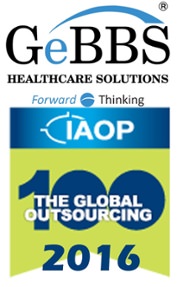Outsourced medical coding’s traditional approach has been staff augmentation. It has been typically used to meet short-term gap needs due to turnover, extended absences, or electronic medical record (EMR) changes. In other words, it has been used when a healthcare provider needed temporary additional resources to supplement its existing resources. However, from our experience, this traditional staff augmentation model is not keeping up with the rapidly changing needs in the healthcare industry.

There is a growing demand for healthcare services to meet the needs of an aging population and the burgeoning impact from newly-insured patients resulting from the Affordable Care Act. The effect is a trickle down that has increased staffing needs all along the revenue cycle from coding to accounts receivables to collections. With the industry’s transition to ICD-10 with its new codes and processes, and computer-assisted coding (CAC), providers have been challenged to keep up with this evolution. There is a need for coders — not just new coders, but also current coders who have been trained to work in today’s new coding world.
As a result, there are some healthcare providers who have spread their outsourcing needs across multiple vendors to meet this demand. Invariable, the quality can suffer with inconsistencies among different vendor processes and management. Further, the vendor has limited economic incentive to make meaningful investments to ensure success due to the limited or unknown contract length. Short-term traditional approach engagements face ramp-up challenges, since even experienced coders may need 45 or more days to reach full efficiency. Coders working in these environments may not capitalize on the values of synergy in processes and technology that using outsourcing professionals from a single vendor offers.
GeBBS, which was recently selected to this year’s IAOP Global 100 Outsourcing List, has seen this trend with its long-term investment and delivery of end-to-end revenue cycle management (RCM) solutions. These solutions provide not only coders, but also HIM technology platforms for coding and audits to improve coding efficiency, accuracy and control. This combination of coders and a comprehensive audit and management capability creates transparency for higher coding performance that meets client standards. The byproduct from higher coding performance is the reduced number of claim denials, which ultimately improves the provider’s revenue flow. This long-term investment is just as true with accounts receivable and patient access, where the strength of GeBBS’ outsourced RCM is not just outsourcing staffing, but also the infrastructure backbone supporting the staffing. The net impact that healthcare providers are seeing include cohesive outsourcing benefits across all of the elements of people, processes and technology. So when you think of outsourcing, realize the important value that outsourcing can provide is not only people, but also the processes and technology to support those people.






